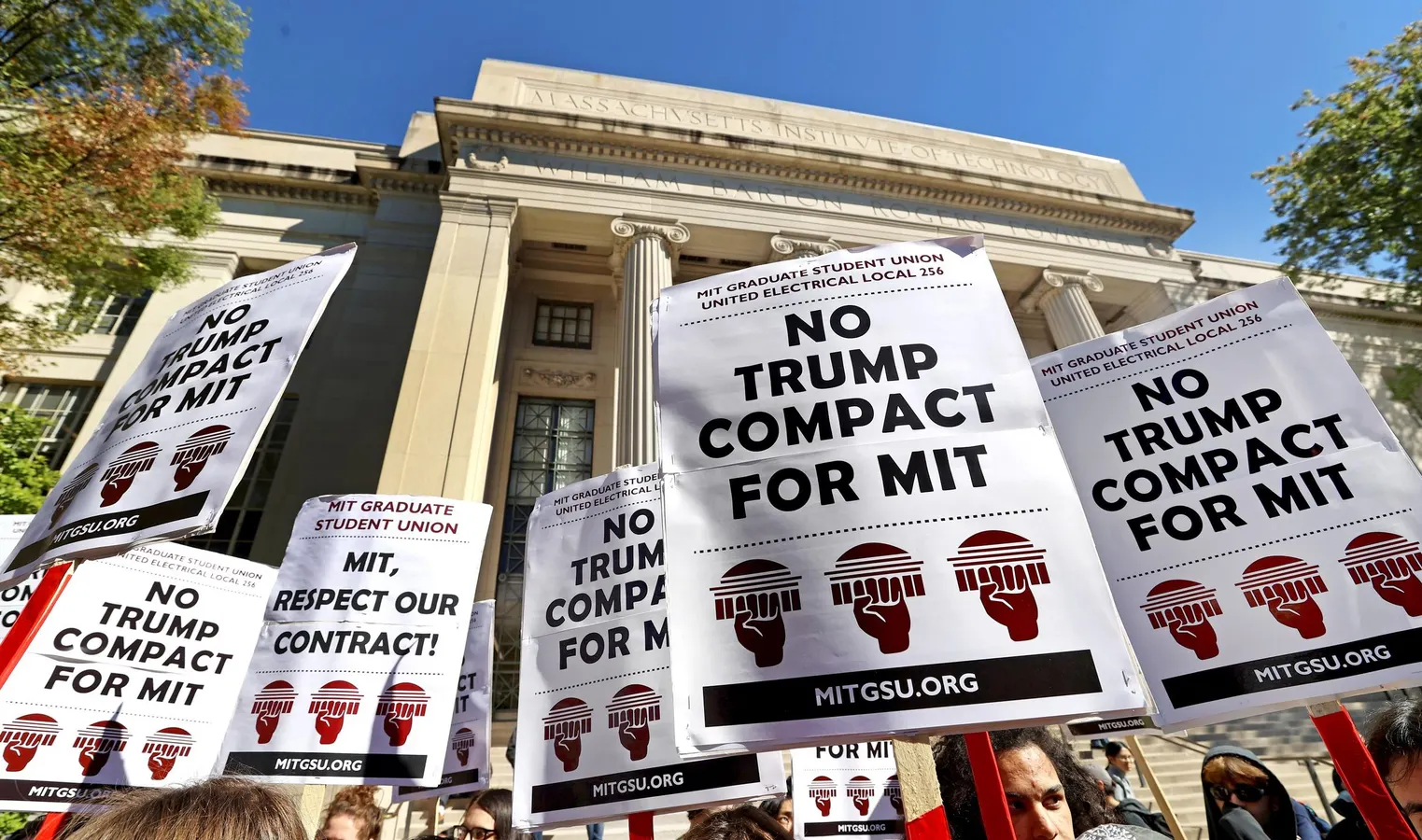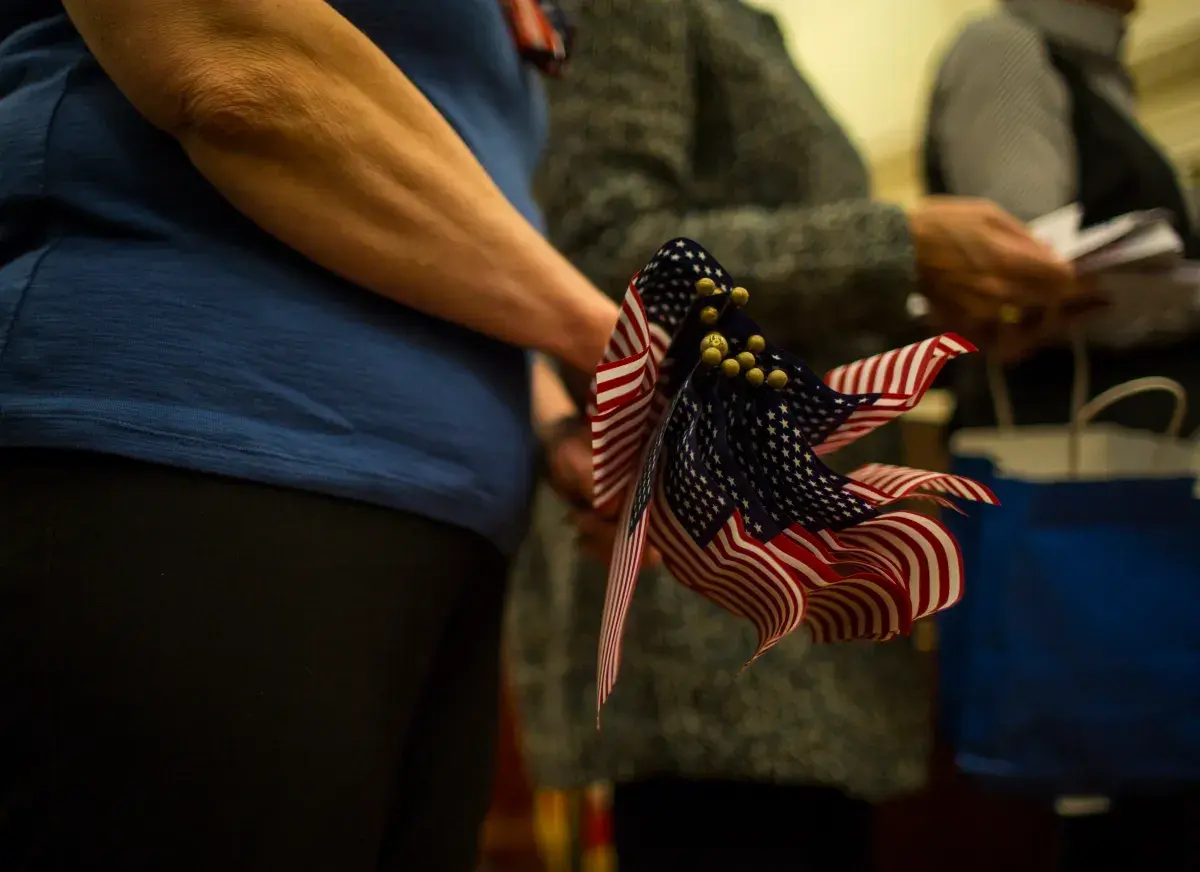Copyright forbes

Cambridge, MA - October 10: Signs at a MIT Grad Student Union press conference on October 10, 2025. (Photo by David L. Ryan/The Boston Globe via Getty Images) Boston Globe via Getty Images Earlier this month, the Trump Administration sent nine universities – including MIT, the University of Pennsylvania, the University of Southern California, Brown University, the University of Virginia, Dartmouth College, the University of Texas at Austin, the University of Arizona, and Vanderbilt University – a Compact for Academic Excellence in Higher Education. These universities are being asked to sign the compact, which requires them to freeze tuition for five years, eliminate sex and gender as admissions factors, stop using race, gender, and ethnicity in faculty hiring, limit international undergraduate enrollment to 15% of the student body, dismantle any units that speak negatively against conservative ideas, and among other changes. In exchange for signing the compact, universities will receive ”priority access" to federal funding and increased opportunities to collaborate with the Trump Administration. Those institutions that do not comply will be “free to develop models and values” other than those described in the compact, but will “forego federal benefits.” The deadline for universities to offermfeedback is October 20, 2025. Karen Gross, former president of Southern Vermont College. Photo Credit: Karen Gross Faculty and higher education leaders have condemned the proposal as a very dangerous overreach of federal power. According to Karen Gross, a former college president and higher education consultant, the compact is “a one-sided mandate emanating from the government with a take-it-or-leave-it strategy.” She added, “It threatens America’s status as a provider of the highest quality educational opportunity. It curbs institutional autonomy and free speech – hallmarks of the creativity and marketplace of ideas that education can and should provide.” Gross also warned that one of the most alarming provisions in the compact allows the government to force universities to return not only federal funds but also private donations if found in violation of the compact. Gross stated, “Our federal government should not decide when philanthropic gifts to higher education can be rescinded. That is overreach, plain and simple.” MIT’s president, Sally Kornbluth, was among the first to publicly reject the compact, stressing that scientific funding must remain independent from political influence. Brown University also rejected the compact, along with the University of Southern California, the University of Pennsylvania, and the University of Virginia. The other universities have faced significant backlash from students and faculty as they weigh their decision. The proposal caused considerable outrage at the University of Pennsylvania (Penn), with the institution’s chapter of the American Association of University Professors stating that the compact amounted to a threat. The organization urged Penn not to cede its self-determination. Jonathan Zimmerman, a professor of education at Penn, is “relieved–and proud–that Penn rejected the Trump administration’s compact, which was really an attempt at extortion.” He also acknowledged that while the compact invoked real concerns, rising costs, and the need for open dialogue, “we simply cannot let politicians determine whether we are protecting free speech, curbing grade inflation, or holding down costs.” Larry Moneta, former Vice President for Student Affairs, Duke University, and Adjunct Professor at the University of Pennsylvania Photo Credit: University of Pennsylvania MORE FOR YOU Some faculty see Trump’s compact as part of a broader attempt to centralize control over higher education. According to Larry Moneta, a faculty member at Penn, “The compact, it seems to me, is not unlike the effort by the Secretary of Defense to control all institutions that inform, educate, and inspire activism. These efforts are not about amplifying conservative viewpoints, which might be a reasonable effort, but instead about suppressing any exposure of inequalities.” He added that while reform in higher education is inevitable, “Presidents and boards must rise to the occasion.” From the Trump Administration’s perspective, the compact is a push for accountability and intellectual diversity in higher education. Trump officials argue that the compact ensures that universities serve U.S. students first and foster “intellectually open” environments. The agreement’s supporters say it would rein in elitism and encourage affordability. With regard to the universities that have refused to sign the compact, Gross compared their stance to law firms that resisted illegal government demands. She stated, “The institutions demonstrate courage and, by their refusal, are acting in the best interests of all. They are leading by example.” From Zimmerman’s perspective, if the administration’s latest effort will gain traction remains unclear. For him, “The question is whether we can correct higher education’s real problems on our own – without giving away what makes universities free.” Editorial StandardsReprints & Permissions



